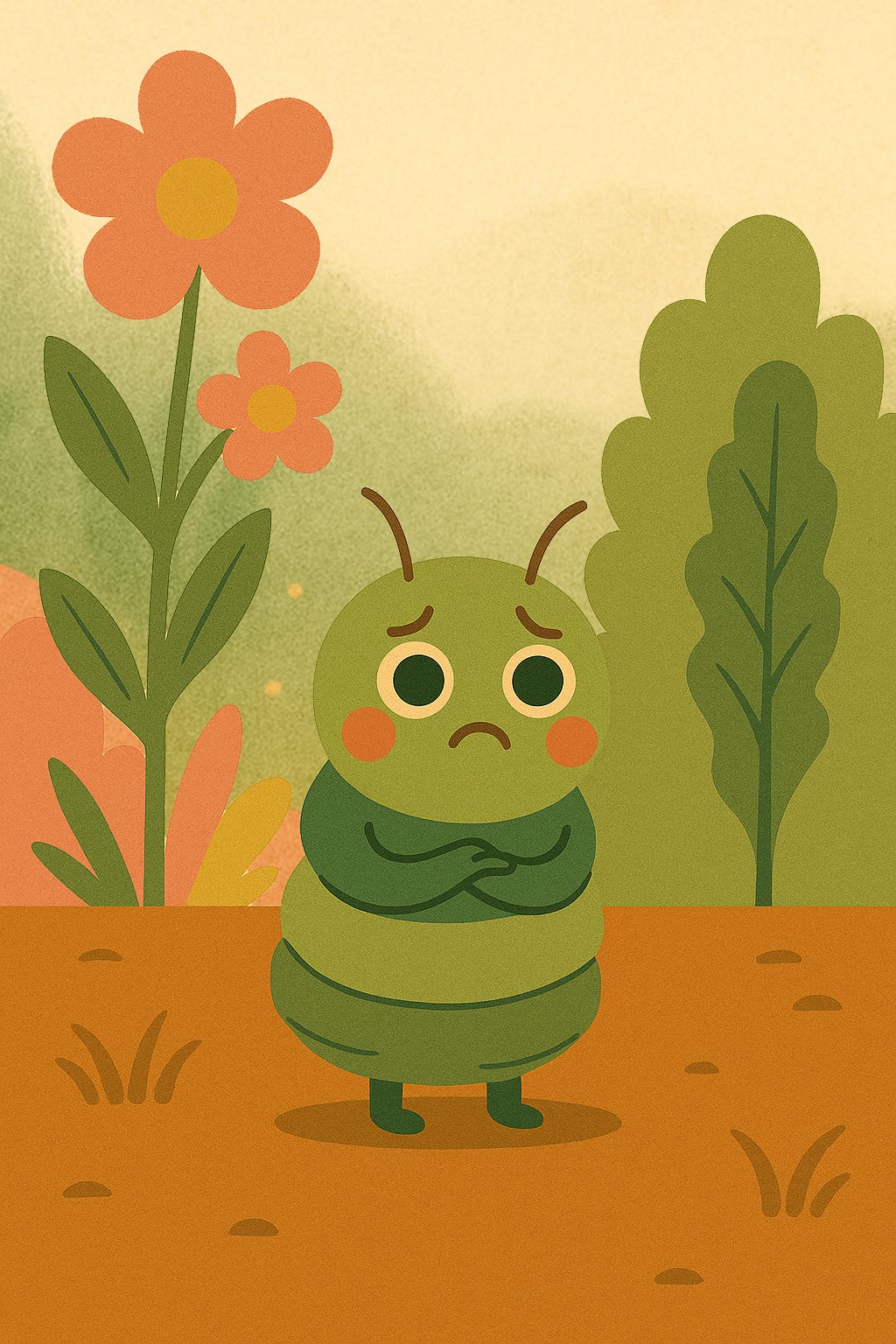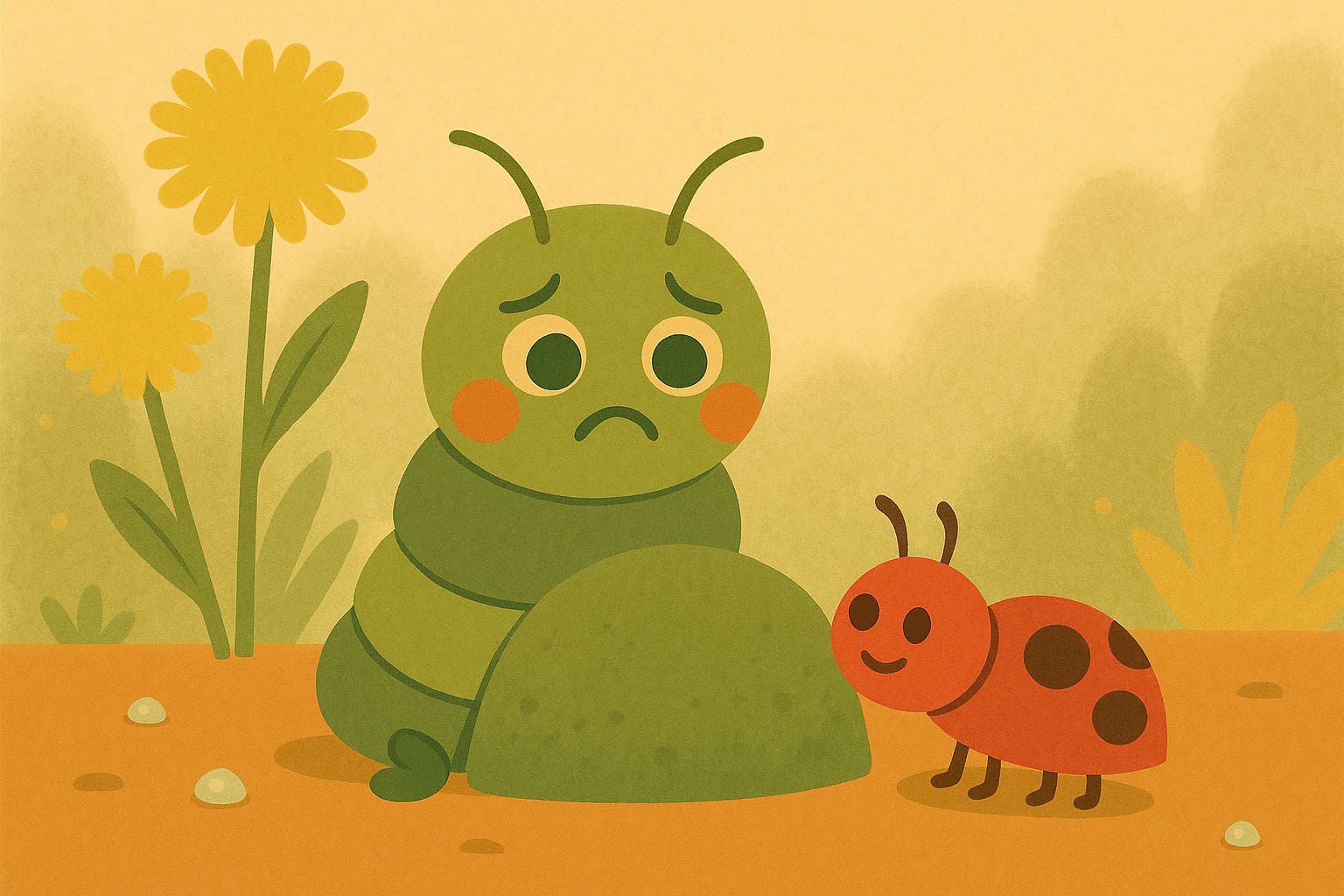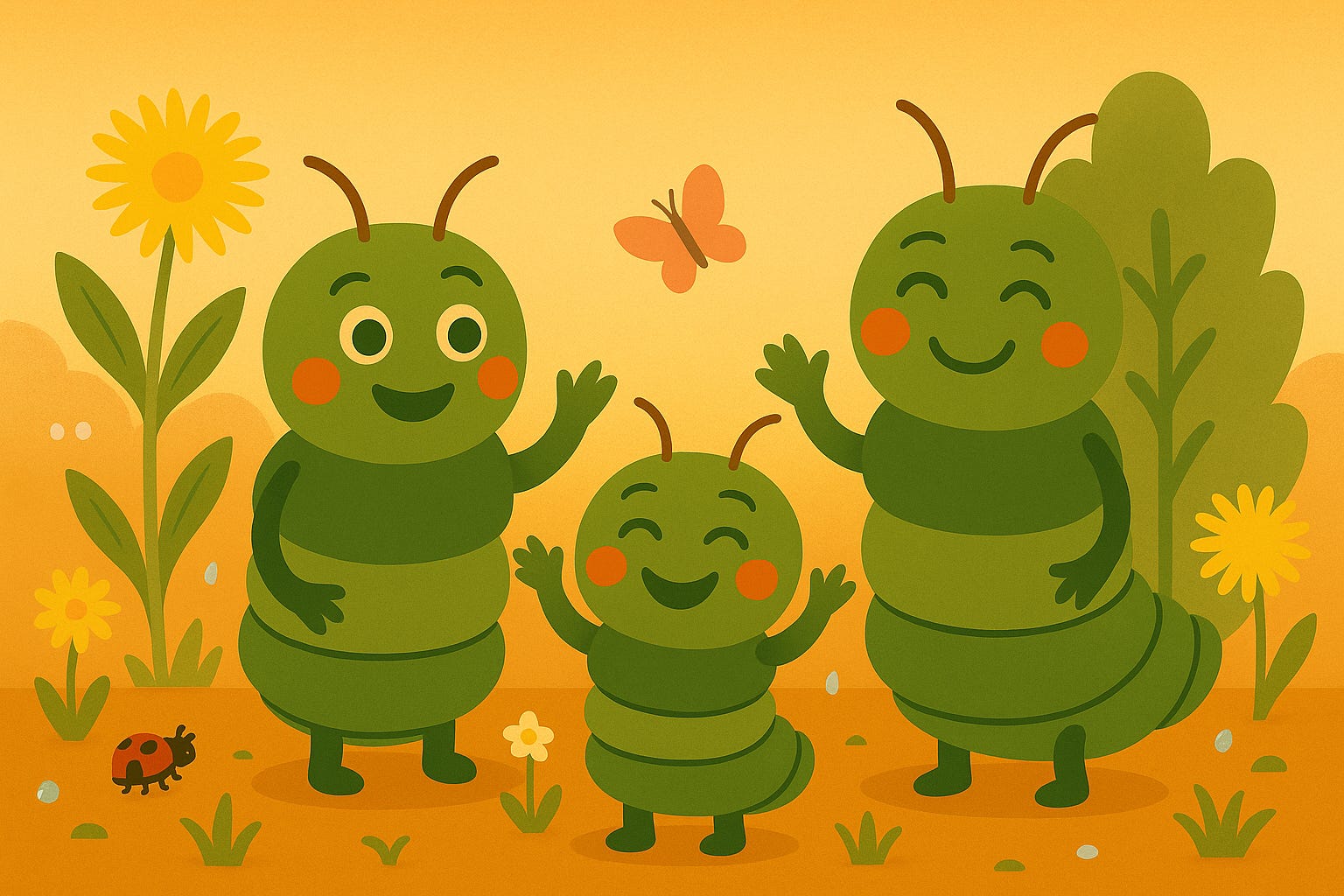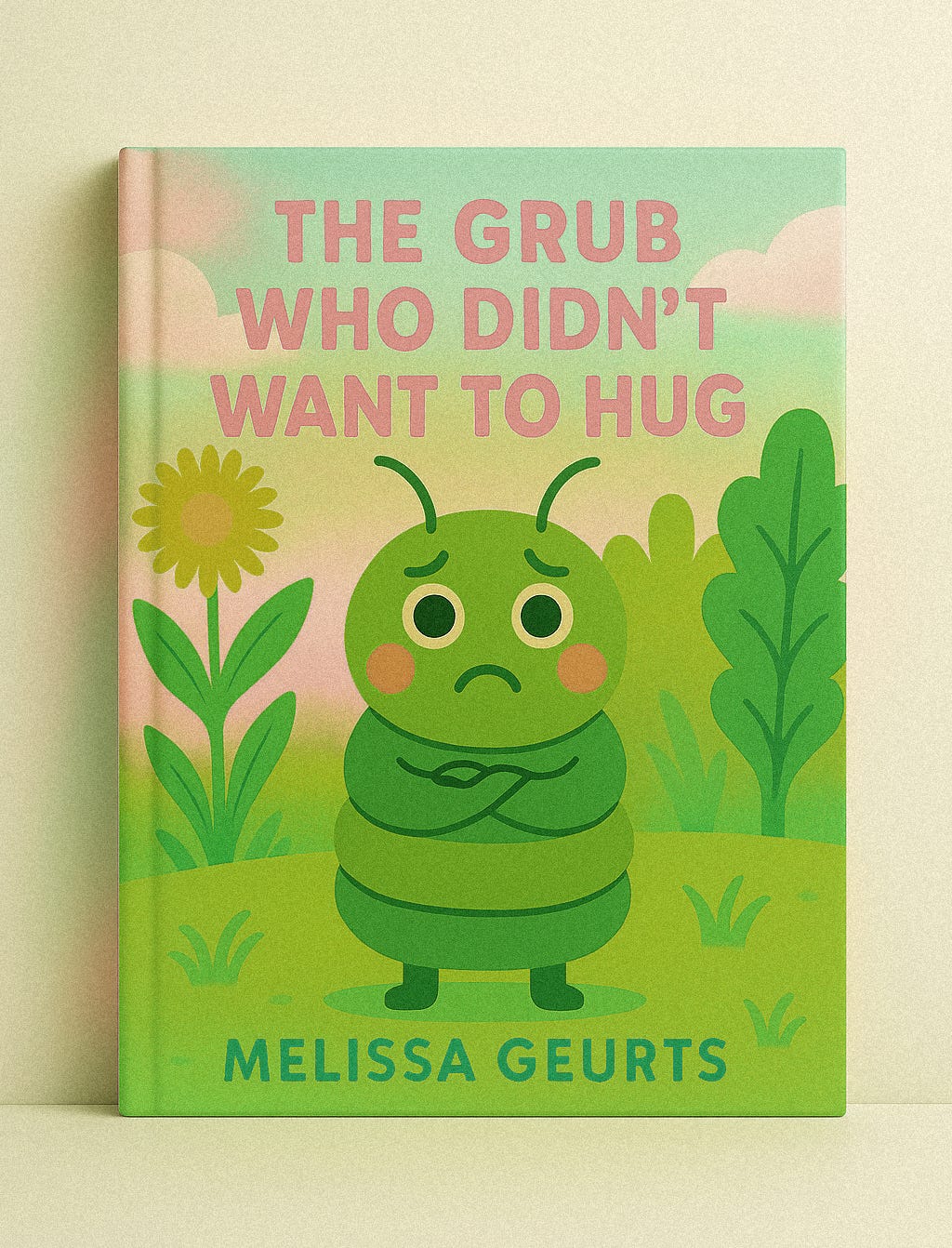In a garden full of dewdrops and dandelions,
Lived a tiny grub named Gus.
He had fuzzy feet, a squiggly smile,
And a heart that beat like a quiet drum.
Gus liked warm tea leaves, soft soil naps,
And thinking big thoughts beneath beetle-blue skies.
But there was one thing Gus didn't like.
Not one bit. Not at all.
Hugging.
"Go on now," said Mama Grub, "Give Auntie Slug a squeeze!"
But Gus's belly flipped. His antenna drooped.
He didn't want to. Not with Auntie Slug.
Not with anyone, really.
"But it's polite," said Papa Grub.
"It's how we show love," said Nana Snail.
So Gus hugged. And hugged. And hugged.
Even when he didn't want to.
Even when his squishy body said no.
One afternoon, Gus wiggled behind a mossy rock
And cried one small tear.
It slid down his cheek like a drop of rain.
A ladybug named Luma landed beside him.
Quiet. Gentle. Bright as a button.
"Are you sad?" she asked.
"I don't like hugging," said Gus. "But everyone says I have to."
Luma thought for a moment. Then she whispered,
"You don't."
Gus blinked.
"You can say 'no thank you,'" said Luma.
"You can wave, or smile, or give a high-five.
Love isn't only one shape."
The words settled in Gus's heart
Like seeds in soft earth.
Warm. True. His own.
That night, Gus told Mama and Papa.
His voice wobbled like a jellybean.
"I don't like hugging," he said.
"And I feel squished when I have to."
Mama looked surprised. Papa looked quiet.
Then Mama knelt down in the dirt.
"Thank you for telling us," she said.
"We didn't know."
Papa nodded slowly.
"Next time, what would feel good to you?"
Gus smiled. "Maybe just a wiggle wave?"
So they all wiggled. Together.
No hugs. Just love.
And in the garden from that day on,
The slugs and bugs learned something new:
You don't have to hug to be kind.
You don't have to squeeze to feel seen.
And everyone gets to choose what feels safe.
Because love,
Real love,
Always listens.
A Note to All:
In a world where children are often told to hug relatives, sit on laps, or accept physical affection they don't want, Gus's story offers a gentle but powerful reminder: consent matters at every age. Teaching children that they have ownership over their bodies—and that love can be expressed in many ways—builds the foundation for healthy boundaries throughout their lives.
When we honor a child's "no," we're not just respecting their comfort in that moment; we're showing them that their voice matters, their feelings are valid, and their sense of safety is important. We're also modeling that love doesn't demand physical touch—it can be expressed through words, actions, respect, and presence.
This isn't about creating fear of affection or physical connection. It's about creating choice. Some children are natural huggers. Others prefer high-fives, waves, or simply sharing space. Both are beautiful ways of being human.
By allowing children to choose how they express and receive affection, we teach them—and ourselves—that the most meaningful connections honor who we are, not who others expect us to be. Love that listens is love that truly sees.






